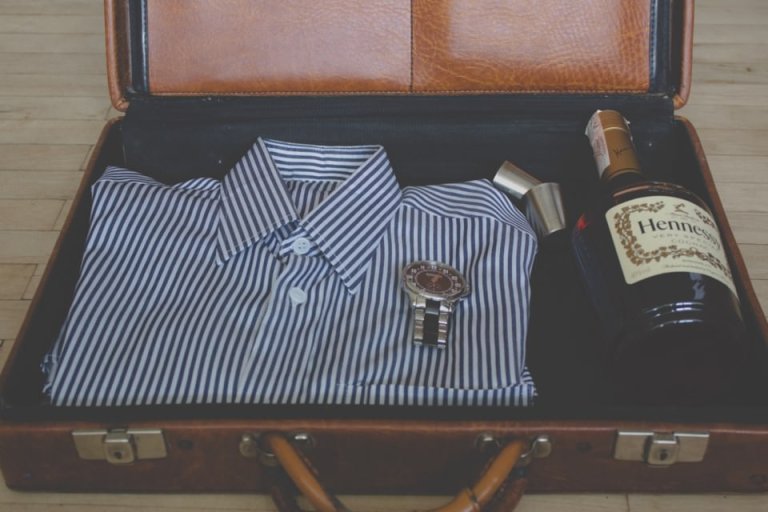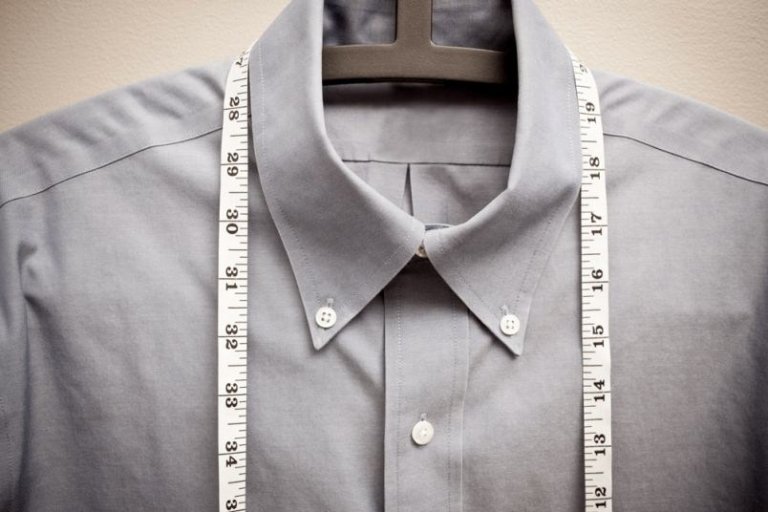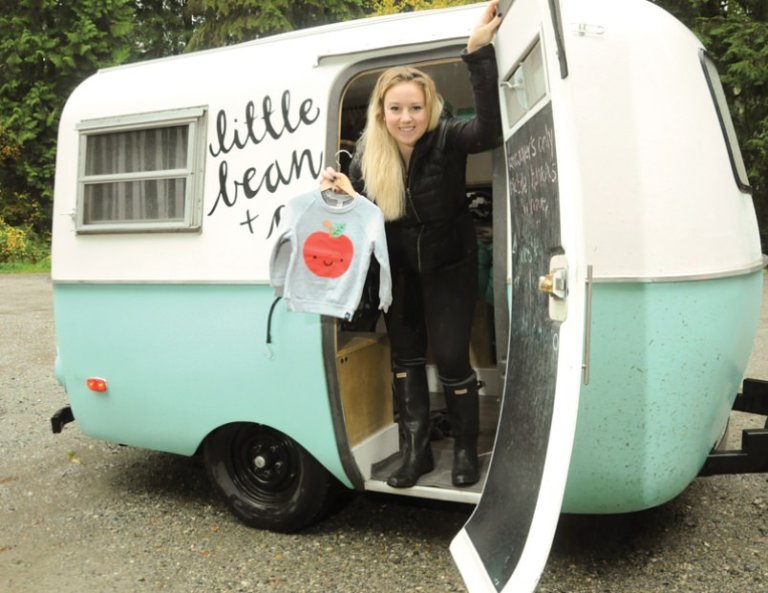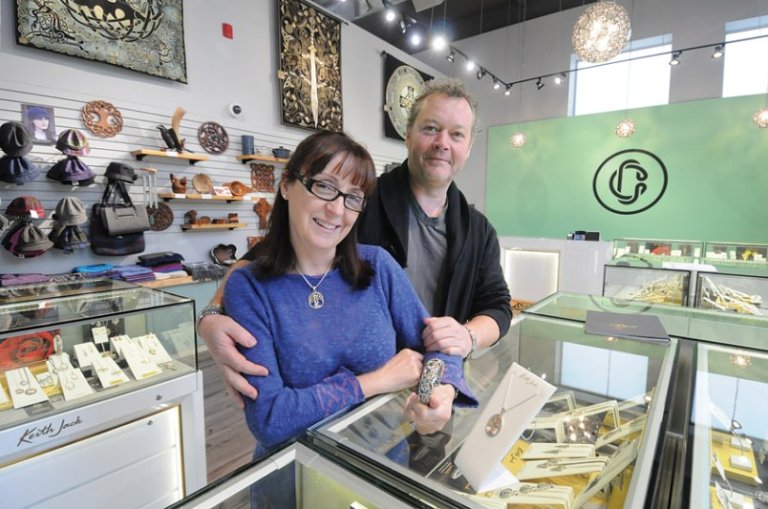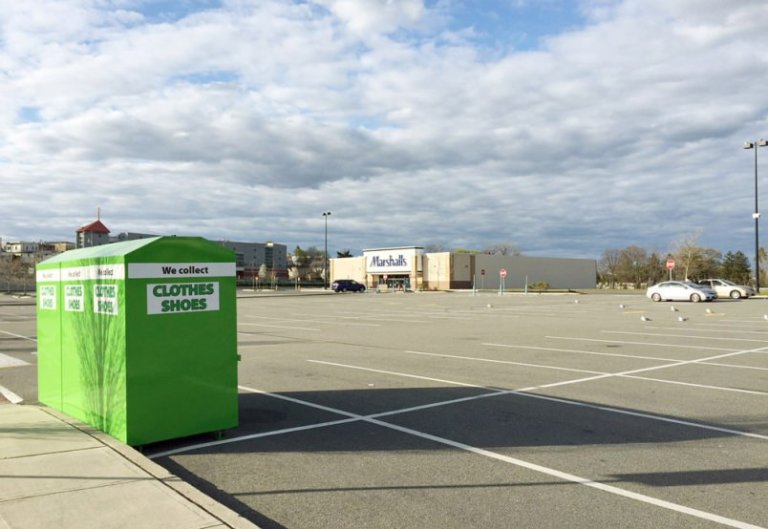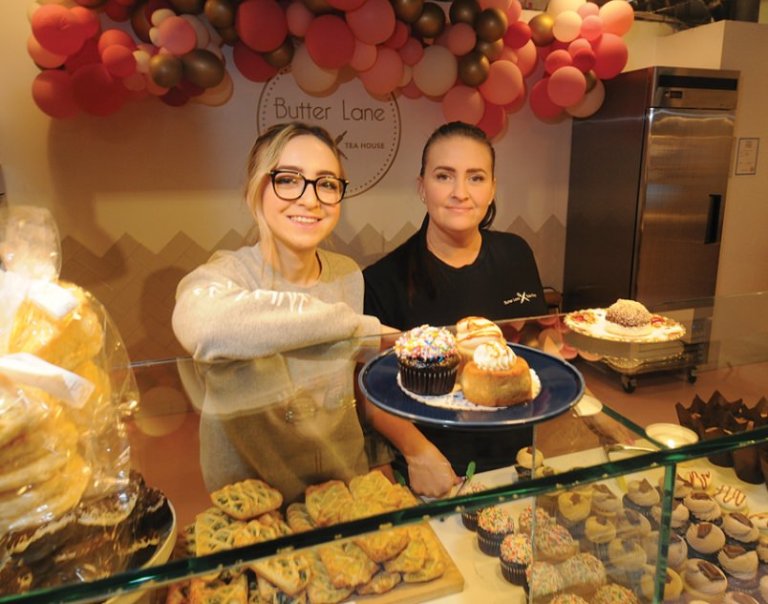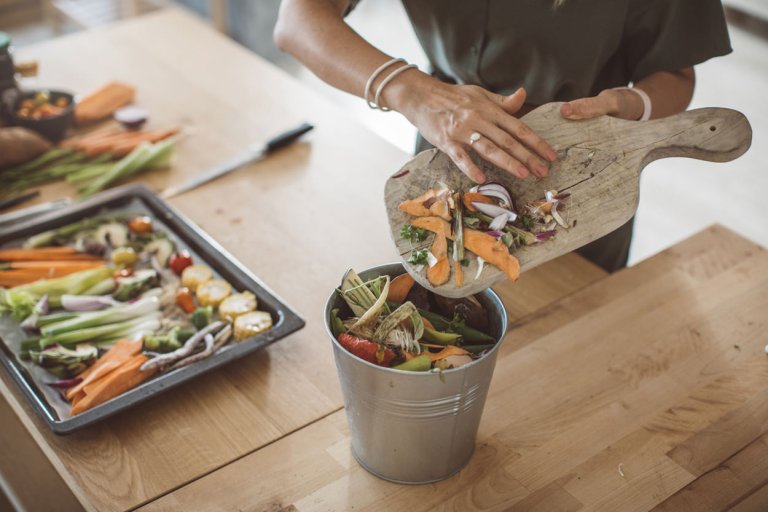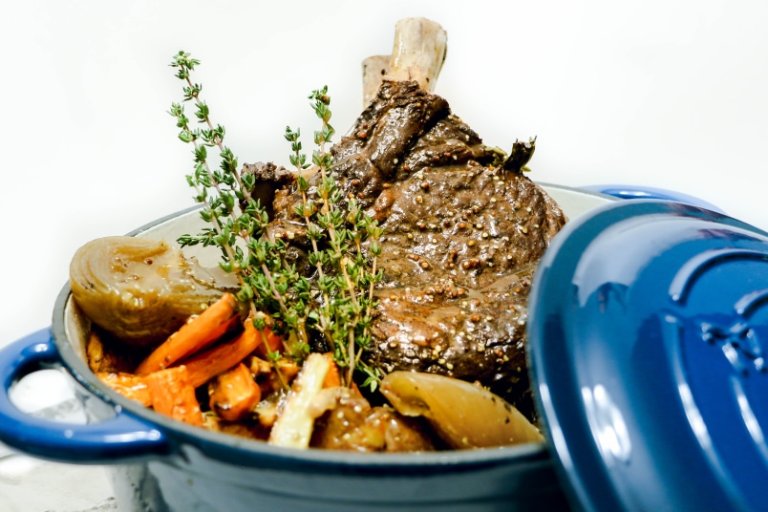Back
Businesses going cashless is a mixed bag in Vancouver
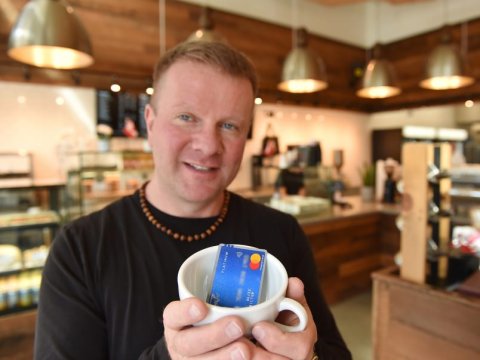
When Grounds for Coffee’s Kitsilano location went cashless earlier this year, owner and founder Dan Hilton expected a slight drop in sales. Instead, the coffee shop experienced a significant boost.
“Sales went up double digits, and they've held steady,” Hilton said. “Foot traffic seems to have gone up as well. This has been steady for four months. It hasn't dipped.”
But after opening a second location in East Vancouver a month ago, Hilton learned a cashless payment system doesn’t work for all neighbourhoods in the city.
Since debuting on Commercial Drive May 15, the business has experienced “considerable” public pressure to accept cash at that location, which they will begin doing shortly.
“I've been receiving a lot of email requests from people who, for the most part, are advocating on behalf of those they feel that maybe aren't so capable of paying with a form other than cash in or around the Drive,” Hilton explained. “And then we've had requests from people at the store who want to pay with cash.”
“We're the new kids on the block,” he continued. “It just doesn't feel right in that particular location to dig our heels in and say, 'No, this is the way it is.’”
Hilton’s experience on the city’s East Side contrasts sharply with Ground’s switch to a card-only payment system at its Alma and 10th location.
“Honestly, most people didn't care,” said Hilton. “More than 80 per cent of our customers weren't using cash anyway.”
Mostly made up of university students and the well-to-do, Kits may be moving away from cash quicker than the rest of the country, but now more and more Canadians are opting for plastic.
A 2018 study from Payments Canada found just under 30 per cent of all transactions in 2017 involved cash — down 10 per cent from five years before. Credit and debit card payments accounted for almost half of all transactions in 2017.
When the Angus Reid Institute recently asked Canadians what’s in their wallet, 63 per cent “agreed either strongly or moderately that they hardly ever carry cash,” including 70 per cent of individuals between the ages of 26 and 37.
Emerging trend
Though it may be the first cash-free café in the city, Grounds for Coffee is not the first Vancouver business to experiment with a cashless system.
In early January, the Vancouver Civic Theatres, a city-owned company, which operates the Queen Elizabeth Theatre, the Orpheum, the Playhouse and the ANNEX, went mostly cashless. The venues still take cash at coat check, where food and drinks can be purchased. Since making the switch, they’ve enjoyed a rise in concession sales, says Guy Leroux, the director of VCT.
Kit+Ace, a clothing retailer founded by Chip Wilson, went cashless back in 2017. So did Marutama Ra-men, a small restaurant chain with three locations in Vancouver.
“Now customers wait less time to be seated as the result of faster payment [and] faster rotation,” Tatsumi Koizumi, chief operating officer at Marutama, told the Courierover email.
The business now pays more in debit and credit service fees, but most customers were paying by card prior to the switch anyways. The advantages of a cashless system, including increased efficiency and reduced labour costs, far outweigh the disadvantages, Koizumi added.
Hilton echoed this sentiment explaining why he chose to go cashless at Ground’s Kits location.
“People often think about the commissions of credit cards, but when you've got staff staying late to count cash, counting it throughout the day, [and] you're paying managers to go to the bank — the cost of [handling] cash was tens of thousands of dollars a year,” he said.
Meanwhile, service has improved, and customers have also started tipping more, says Hilton.
“The quicker you can process a transaction and get their order up, the quicker you can serve the next customer — it's just a better experience for everybody,” he continued. “It is more efficient by a long shot.”
Still, Grounds inevitably hit some road bumps after first introducing the system in Kitsilano. Accommodating children who may not have access to a debit or credit card led the 26-year-old coffee shop, famous for its cinnamon buns, to improvise.
“What we decided to do was load up some gift cards with the prepaid amount for a cinnamon bun on there, [and] attached a little note with the gift card explaining to their parents that we had gone cashless,” Hilton said. The parents could then reload the gift cards for their kids to use, a system he says has worked well so far.
Grounds uses a similar approach for low-income or homeless individuals who only carry cash. However, at times the business might refuse to charge the person altogether, an “unwritten” rule Hilton says has long been in practice.
“If you're homeless, and you come in looking like you're cold and you can't afford a coffee, we would have given you a coffee for free anyway,” he said.
But while most customers have been fine paying exclusively by card, a small minority take issue, says Hilton. One employee in Kits recalled a disgruntled customer who claimed it was illegal to decline physical currency. In fact, refusing cash is perfectly legal. According to the Bank of Canada, both parties to a transaction "must agree on the payment method."
Concerns over privacy and exclusion
While business touts the cost-saving efficiency of going cashless, and consumers enjoy the convenience only carrying plastic offers, some experts warn Canada isn’t ready yet for a cash-free economy.
For starters, consumer privacy is often overlooked, says Werner Antweiler, a professor at the UBC Sauder School of Business.
“Whenever you use an instrument like a credit card or debit card, you're actually sharing information about your transaction with a third party,” Antweiler explained.
“For example, Royal Bank has partnerships with Petro-Canada. When you use your credit card at the gas station, you get like three cents off, but then the bank shares your transaction information with Petro-Canada so they can target you for advertisements and other things.”
Apple and Google also provide apps that facilitate in-store purchases with a smartphone, allowing the tech giants to keep track of what people are buying and harvest that information without consumers knowing.
However, Hilton insists Grounds is not permitted to keep payment data and has “no means of doing so.”
As the country moves away from cash, the Canadian government needs to strengthen the country’s consumer privacy laws, says Antweiler.
He points to the European Union’s General Data Protection Regulation as a worthy blueprint. The comprehensive law, enacted last spring, grants EU citizens what Antweiler calls “informational self-determination,” giving people the right to access data companies possess about them and demand it be deleted.
Antweiler also echoed the concerns of those on the Drive who believe cashless businesses exclude low-income and homeless people without access to credit or debit.
“It's not just the poor, but it's also [certain age] groups that are marginalized because they are too young or they're too old, and maybe they feel they can't embrace these technologies as easily as younger people,” said Antweiler.
“We may need to consider regulation that requires these barriers be removed so that everybody can access an electronic payment device with little to no cost,” he added.
A cashless economy is inevitable, says Antweiler. Whether Canada will be ready is much less certain.
@benjaminmussett
By: Vancouver Courier
GuidedBy is a community builder and part of the Glacier Media news network. This article originally appeared on a Glacier Media publication.
Location
Topics
Related Stories
-
Gifts Abbotsford
Four fabulous experience gift ideas for mom this Mother’s Day
If you’re tired of giving the same old types of Mother’s Day gifts, treat your mom with an experience instead. There are many...
-
Electronics
10 Live Webcams for Armchair Travellers
You can watch Pacific Great Blue Herons nest and raise their young in trees next to the Vancouver Park Board office via a live...
-
Clothing
Clothing travel hacks for the savvy business traveller
Summer is fast approaching, which means more and more people are going to be travelling. Luckily, it’s not difficult to look...
-
Clothing North Vancouver
Frugal North Van fashionista gets high on thrifting
Let’s be honest, being stylish in Vancouver can be a slog if you don’t have the funds. Unless, you get creative. Enter Tijana...
-
Gift Shop
HOME IDEAS: Take gift-giving to the next level with snazzy wrapping designs
The look on a toddler’s face when they are presented with a gift is a very rewarding moment. When giving a kid’s gift, it’s...
-
Jewellery New Westminster
Make a Shopping Trip For Jewellery
Sponsored Content The next time you’re on the market for a beautiful piece of jewellery, a work of art, or snowboard gear or...
-
Clothing Vancouver
Mobile tailoring overhauls industry
Sponsored Content “People have no time,” said Dorottya Szabo, a fashion designer based on the North Shore. “The most...
-
Jewellery Vancouver
Have your diamonds your way
Sponsored Content The ultimate luxury when you get engaged or celebrate a special event is custom jewellery – something made...
-
Boutique North Vancouver
Kids' clothing company plays outside the box
Paige Manning and her husband Kaleb conceived Little Bean + Co. on a stormy night during their honeymoon in Tofino. It was...
-
Clothing North Vancouver
Couple brings Irish flavour to Lower Lonsdale
Helen Ritchie became the owner of a Celtic store in North Vancouver by accident. After immigrating to Vancouver from Cork,...
-
Shopping Burnaby
From your closet to where? The fascinating lives of clothes
Sponsored Content In the Metro Vancouver area alone, over 44 million pounds of clothing were thrown out last year and sent...
-
Shopping North Vancouver
Lonsdale specialty shops complement each other on the waterfront
Green Leaf Brewing celebrates its fifth anniversary this week. I recall first learning of the brewery’s opening and wondering,...
-
Shopping Centre New Westminster
7 tips for Boxing Day sanity — BBB
Today, Boxing Day, continues to be a popular day for shopping in person or online, according to recent surveys. But there are...
-
Home Decor Vancouver
Refreshing Your Home for Spring/Summer
There are many ways you can refresh your house for the spring/summer season. These projects can provide your house with the...
-
Food & Drink Abbotsford
4 Dishes to Make with Summer Peaches
Summer is the perfect time of year to experiment with different ways to use peaches. These juicy, refreshing fruits can be...
-
Home & Garden Abbotsford
How to Create a Zero-waste Household
Reducing your household waste can help the planet in many ways. You may even be able to eliminate your waste completely if...
-
Beauty & Wellness Abbotsford
7 beauty trends for summer 2021
You may be looking forward to re-entering society this summer or at least looking better during a video meeting. Beauty trends...
-
Gifts Abbotsford
Four fabulous experience gift ideas for mom this Mother’s Day
If you’re tired of giving the same old types of Mother’s Day gifts, treat your mom with an experience instead. There are many...
-
Home Furniture & Decor Abbotsford
Working from home? 4 tips for your home office setup
Working from home can be a better experience for you with the right office setup. Setting up your in-home office correctly can...
-
Coffee Sales Vancouver
Everyone's whipping up dalgona coffee, the viral drink catching tons of buzz
Over the last couple of weeks, you might have noticed people posting photos of an unusual-looking coffee drink. What appears to...
-
Pets & Animals Vancouver
This virtual platform connects pet owners with veterinarians
If you are worried about the health of your pet during the COVID-19 pandemic, you are not alone. Whether you are too...
-
Delivery Vancouver
Stuck At Home? These BC Breweries Will Deliver Beer to Your Door
Thankfully, a number of B.C. craft breweries offer online sales, with delicious craft beer available to be delivered right to...
-
Design & Renovations Vancouver
How To Decorate Your Rental So It Feels Like Home
The right bath and hand towels can add energy to a room. Photo: Barb Lunter Older rental suites can sometimes be plagued...
-
Design & Renovations Vancouver
Spring Decor Tips to Refresh Your Space
Fresh flowers, topical coffee table books and garden ornaments used cleverly indoors are a few ways...
-
Healthy Living Vancouver
How To Be Ultra-Productive While Working Remotely
Canadians across the country set up laptops and cellphones to work from home on Monday to avoid COVID-19. While it’s a new...
-
Healthcare Vancouver
B.C. research suggests no mental health benefits to eating your placenta
A new study published May 2 has suggested there are no mental health benefits to eating your placenta. The new research...
-
Catering Vancouver
40 years of perfecting the party
Four decades is a long time, and it is especially long in the competitive hospitality industry, which is cutthroat and not for...
-
Local Attractions Vancouver
8 awesome things to do in Whistler besides ski and snowboard
While skiing and snowboarding are a great deal of fun, Whistler offers a plethora of fun activities that you must try. From...
-
Wedding Experts Vancouver
Canada's Event Planning Star, Soha Lavin
You could say that event planning is in Soha Lavin’s blood. Indeed, the founder of Vancouver-based CountDown...
-
Food & Drink Vancouver
Chef Trevor Bird shares cooking tips and recipes for busy parents
We get it, parents are busy. In Vancouver at least, it’s typical that both parents work, which can make dinner time more than...
-
Seasonal Vancouver
Do couples still do date nights? They should if they want to last
My sensible wife reminds me that Valentine’s Day is only a Hallmark holiday – a day when florists are overwhelmed selling roses...


